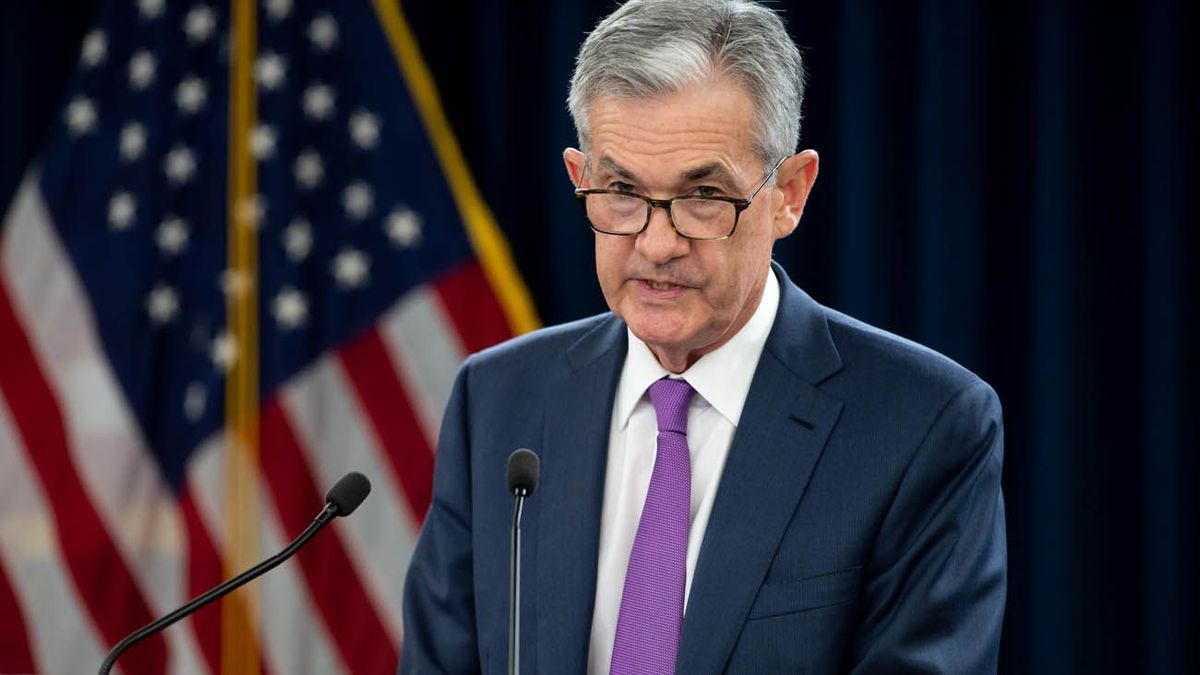This is the third consecutive rise made by the Fed and takes reference rates to a range of 1.5-1.75%. The agency also increased its inflation forecast for 2022 to 5.2% and cut its growth forecast to 1.7%, at the end of a two-day meeting of its monetary policy committee.
The yield on two-year US Treasury bonds, highly sensitive to rate hikes, rose to 3.441% after the Fed’s statementjust below the 3.456% level reached on Tuesday, which was the highest since November 2007. Meanwhile, the return on benchmark 10-year paper rose to 3.445% and remained below Tuesday’s maximum of 3.498%, which was the highest since April 2011. All this validates the perception that the markets had that the 50 basis point increases that the governing body had been applying were not enough. .
“The decision to raise the rate to 75 points is the first since 1994. Previously it had said that it was going to be 50 points. Why now and this magnitude? Because inflation expectations show divergences. The May data changed the dynamics”, he explained to Ámbito, Nicolás Khon, analyst at Balanz. Khon pointed out that the sharp rise in the rate that the US central bank will implement is aimed at cutting off the escape of prices in the United States. The analyst stated thatit is about avoiding second-round effects, which would have to raise the rate even more”.
The Balanz economist considered that, for the time being, one of the issues that can matter the most to Argentina, such as the price of soybeans and the rest of the cereals, would be left out of the strengthening process that the currency is going to have. American. “The dynamics of raw materials is going the other way,” he explained. The price today is affected by Russia’s invasion of Ukraine due to global supply restrictions. According to the analyst, energy has risen 80% since the war and grains 30% and that is what explains the movement of commodities at a global level.
However, what it is inevitable that the global financial environment will get tougher, despite the fact that Argentina is almost out of it, with a country risk of around 2100 points. “This adjusts financial conditions globally, especially on fixed income. Bonds fell 15%, although those of Argentina fell 30%. Khon considered that the environment of high rates is going to be maintained until the Fed is sure that the inflationary process has been stopped.
John Paul Albornozanalyst of Ecolatina, believes in an adverse scenario for Argentina in the following years, in a context of permanent change in the conditions of the world economy. “As a country we missed the era of cheap silver that other countries in the region were able to take advantage of”Albornoz pointed out. He said that for now the rate hike will not affect the real economy. He also believes that the conditions generated by the war in Eastern Europe will leave restrictions on the supply of energy and food and this, in some way, will allow Argentina to enjoy high grain prices for some time. “What happens is that the wind went from blowing in favor to blowing against”explained Albornoz, who considered that “lUnfortunately this is here to stay, it will not be a matter of months, but of years”.
Source: Ambito
David William is a talented author who has made a name for himself in the world of writing. He is a professional author who writes on a wide range of topics, from general interest to opinion news. David is currently working as a writer at 24 hours worlds where he brings his unique perspective and in-depth research to his articles, making them both informative and engaging.




